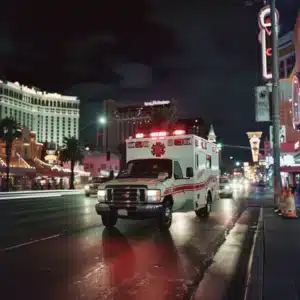
Understanding Nevada Law on Car Accidents: Key Points to Know
In Nevada, understanding car accident laws is essential if you find yourself in an auto collision. The state uses a fault-based system, holding the responsible driver liable for damages. This article covers the steps you must take after an accident, the important timelines for claims, and the basics of liability according to Nevada law on car accidents.
Key Takeaways
- Nevada operates under a fault-based system for car accidents, making the negligent driver responsible for damages, and follows a two-year statute of limitations for filing personal injury and wrongful death claims.
- Nevada’s pure comparative negligence rule allows victims to recover damages even if they are partially at fault, but the compensation is reduced by their percentage of fault.
- After a car accident in Nevada, it is mandatory to contact law enforcement, exchange information, gather evidence, and report the accident to the DMV if there’s significant property damage or injury, to ensure compliance with state laws.

Overview of Nevada Car Accident Laws
Navigating the aftermath of an auto accident can be overwhelming, but understanding key aspects of Nevada car accident laws is crucial. Auto negligence, also known as automobile negligence, occurs when a driver’s careless actions lead to an accident, causing harm to others. This encompasses a range of behaviors, including negligent driving, such as:
- Distracted driving
- Speeding
- Drunk driving
- Reckless driving
For car accident victims in Nevada, it’s essential to recognize that the state operates under a fault-based system, meaning the negligent driver is held accountable for the damages incurred.
In Nevada, the statute of limitations for filing a car accident lawsuit is generally two years from the date of the accident. This means that if you or a loved one has been involved in an automobile accident, you have a limited window to seek legal recourse. Being aware of these timelines and the legal framework can greatly influence the outcomes of any auto negligence accident lawsuit you may pursue.
Fault-Based System in Nevada
Nevada’s fault-based system for car accidents places the responsibility for damages squarely on the at-fault driver. This system is integral to determining who pays for vehicle damage, medical bills, and other associated costs. When an accident occurs, establishing fault typically involves police investigations, accident reconstruction, and gathering witness statements. This thorough process ensures that the negligent driver is properly identified and held liable.
One of the unique aspects of Nevada’s legal approach is its pure comparative negligence rule. This rule allows car accident victims to recover damages even if they are partially at fault, with the compensation reduced by their percentage of fault. For instance, if you were found to be 20% at fault for an accident, you could still recover 80% of the total damages. This flexible system ensures that even when fault is shared, victims can still seek the compensation they deserve.
Mandatory Steps to Take After a Car Accident in Nevada
In the immediate aftermath of a car accident, knowing the mandatory steps to take can be pivotal. First and foremost, contacting law enforcement is crucial. Not only does this ensure that emergency services are on their way, but it also ensures that the accident is officially documented. This documentation can be invaluable when pursuing legal action or filing an insurance claim.
Equally important is exchanging information with the other drivers involved and gathering evidence at the scene. These steps include:
- Providing your contact and insurance information
- Collecting the same from the other parties
- Taking photos and videos of the accident scene, vehicle damage, and any visible injuries
These can serve as crucial evidence in proving negligence and liability. By following these steps, you lay a solid foundation for any future legal or insurance processes.
Contacting Law Enforcement
One of the first actions to take after a car accident is contacting law enforcement. The police can promptly investigate the car crash, collect evidence, and record their findings in a police report, which can be vital for any legal action you might pursue.
Ensure that the police arrive at the scene, as their documentation will include witness statements, photographs, and other details that can significantly bolster your case.
Exchanging Information
After ensuring everyone’s safety and contacting law enforcement, the next mandatory step is exchanging information with the other drivers involved. This includes providing:
- Your name
- Contact details
- Insurance information
- Driver’s license number
Collect the same information from the other drivers to ensure you have all the necessary details for any subsequent legal or insurance proceedings.
Gathering Evidence at the Scene
Gathering evidence at the scene of the accident is essential for proving negligence and liability. Here are some steps to follow:
- Take clear photos and videos of the accident scene, including vehicle damage and road conditions.
- Document any visible injuries.
- Record your impressions of the accident immediately.
Additionally, collect the names and contact information of any witnesses, as their statements can be crucial in establishing the facts of the case.
Contact us today and we will help you get the compensation that you deserve.
Reporting Car Accidents to the DMV
In Nevada, it is mandatory to report any car accident involving a motor vehicle that results in injury, death, or property damage exceeding $750 to the DMV. This report needs to be filed using the Nevada DMV Report of Traffic Accident Report (SR-1) form. Even if the police have filed a report, the driver must ensure that the DMV receives this information. Failing to report such an accident can lead to serious consequences, including a gross misdemeanor charge that carries fines and possible jail time.
Providing false information in the accident report is equally serious and is considered a gross misdemeanor in Nevada. Therefore, it’s crucial to be accurate and truthful when reporting the accident to avoid further legal complications. By adhering to these reporting requirements, you maintain compliance with state laws and help facilitate any legal or insurance processes that may follow.
Understanding Comparative Negligence in Nevada
Nevada’s car accident laws include a modified comparative fault rule. Here’s how it works:
- Financial recovery is only possible if the claimant’s responsibility for the accident is less than that of the other party involved.
- If you are found to be 50% or more at fault, you are not entitled to recover any damages.
- This framework ensures that only those who are less at fault can seek compensation for their losses.
The amount of compensation is reduced based on the percentage of fault assigned to the claimant. For example, if a driver rear-ends you while you are speeding, your compensation may be reduced by your share of fault. This system encourages all parties to act responsibly and recognizes the complexities of determining fault in car accidents.
Filing a Car Accident Claim in Nevada
Filing a car accident claim in Nevada involves several critical steps. First, notify your insurance company as soon as possible and provide all necessary documentation related to the accident. This documentation should include detailed records of medical expenses, treatments, and diagnoses to substantiate your claims.
It’s also advisable to work with an experienced attorney to navigate the complexities of the claims process and ensure a fair settlement. An attorney can help gather evidence, negotiate with insurance companies, and represent your interests in any legal proceedings.
Working with Insurance Companies
When working with insurance companies, it’s important to:
- Be honest and accurate in your reporting
- Avoid admitting fault
- Insurance adjusters will review your claim and may request additional information or clarification
- Being cautious with your statements can prevent your words from being used against you in an auto negligence lawsuit.
Legal Documentation Required
Filing a successful car accident claim requires thorough legal documentation. Here are some steps to follow:
- Obtain a copy of the police report.
- Gather your medical records.
- Collect proof of expenses such as repair estimates and bills.
- Keep copies of all communications with insurance companies, medical providers, and legal representatives to support your claim and ensure you have all necessary evidence.
Statute of Limitations for Car Accident Claims in Nevada
Understanding the statute of limitations is crucial for filing car accident claims in Nevada. Here are the deadlines for different types of claims:
- Personal injury lawsuits arising from car accidents: two years from the date of the accident
- Property damage claims: three years from the date of the accident
- Wrongful death claims: two years from the date of the deceased’s death.
It’s important to note that minors involved in car accidents have a statute of limitations that begins when they turn 18, giving them two years from that date to file a claim. If a claim is filed after the statute of limitations has expired, it is typically dismissed by the court. Therefore, timely action is essential to preserve your legal rights.
Types of Compensation Available
In Nevada car accident cases, plaintiffs can seek various types of compensation. Economic damages cover monetary losses such as medical expenses, lost wages, and property damage. These damages are designed to reimburse the victim for actual financial losses incurred due to the accident.
Non-economic damages, on the other hand, address intangible losses like pain and suffering, emotional distress, and loss of enjoyment of life. Additionally, punitive damages may be awarded in cases where the at-fault party’s behavior was particularly reckless or malicious, aiming to punish and deter similar conduct in the future.
Economic Damages
Economic damages encompass a wide range of financial losses, including:
- Medical bills for surgeries, emergency care, physical therapy, and consultations with healthcare professionals
- Lost wages due to the inability to work
- Costs associated with vehicle repairs
These are just a few examples of the types of expenses that fall under economic damages.
Non-Economic Damages
Non-economic damages are losses that are difficult to measure, as they cannot be easily quantified. These damages often include:
- Pain and suffering
- Emotional distress
- Loss of enjoyment of life
- Compensation for pain and suffering
- Compensation for emotional distress
- Compensation for diminished quality of life
These damages also cover ongoing symptoms such as anxiety, depression, or PTSD that result from the accident.
Proving Negligence in a Nevada Car Accident Case
Proving negligence is essential for a successful car accident claim in Nevada. This involves establishing four key elements: duty of care, breach of duty, causation, and damages. Drivers have a legal duty to operate their vehicles safely and responsibly. When this duty is breached, it can lead to accidents and injuries.
Gathering detailed evidence and presenting sound legal arguments are crucial to prove auto negligence. An experienced auto negligence lawyer can help build a strong case by collecting necessary evidence, such as witness statements and accident reports, to establish the defendant’s liability in a car accident.
Duty of Care
Duty of care refers to the legal obligation of drivers to act with the prudence that a reasonable person would exercise in similar circumstances. This means driving in a safe and responsible manner to avoid causing harm to others on the road and not taking any unreasonable risk.
Breach of Duty
A breach of duty occurs when a driver’s actions fall below the expected standard of care. Examples include:
- driving at unsafe speeds
- failing to be alert
- not maintaining control of the vehicle
- reckless driving
- neglecting essential car equipment
All of these actions constitute a breach of duty.
Causation and Damages
To successfully prove negligence, causation and damages must be proven to establish a successful negligence claim. Causation means that the injury would not have occurred but for the defendant’s action or failure to act. Proving this link is essential to demonstrate that the defendant’s negligence directly resulted in the damages suffered.
Hiring an Experienced Car Accident Lawyer in Nevada
Hiring an experienced car accident lawyer in Nevada can be crucial in navigating the complexities of the legal system. A skilled attorney can help you understand your rights and explore your legal options, ensuring you receive the compensation you deserve. With expertise in building a case against the at-fault party, a reputable lawyer increases your chances of securing a fair settlement.
Lawyers handle negotiations with insurance companies, manage all necessary paperwork, and provide representation in court if needed. They can secure compensation for medical expenses, lost wages, and pain and suffering, ensuring you are not shortchanged by low settlement offers from insurance companies.
What to Look for in a Car Accident Lawyer
When selecting a car accident lawyer, look for the following qualities:
- Experience in handling similar cases
- A track record of successful outcomes
- Good communication skills
- A commitment to keeping clients informed
These qualities are essential in ensuring that you choose the right lawyer for your case.
A lawyer with a high success rate in settling claims and a proven ability to handle trials can significantly impact the outcome of your case.
Free Consultation and Legal Fees
Many car accident lawyers in Nevada offer a free initial consultation to discuss the details of your case. Most work on a contingency fee basis, meaning they only get paid if they win the case. This arrangement ensures that legal representation is accessible to those who need it, regardless of their financial situation.
Frequently Asked Questions
What is the statute of limitations for car accident claims in Nevada?
In Nevada, the statute of limitations for car accident claims is two years for personal injury lawsuits, three years for property damage claims, and two years from the date of death for wrongful death claims.
What should I do immediately after a car accident in Nevada?
After a car accident in Nevada, it’s crucial to contact law enforcement, exchange information with other drivers, gather evidence at the scene, and report the accident to the DMV if there are injuries or significant property damage. These steps are important for legal and insurance purposes.
Can I still recover damages if I am partially at fault for the accident?
Yes, you can still recover damages even if you are partially at fault for the accident, but the compensation will be reduced by your percentage of fault.
What types of compensation can I seek after a car accident?
After a car accident, you can seek economic damages for medical expenses, lost wages, and property damage, as well as non-economic damages for pain and suffering and emotional distress. Loss of enjoyment of life can also be included in the compensation sought.
How can an experienced car accident lawyer help me?
An experienced car accident lawyer can assist you by helping you understand your rights, gathering evidence, negotiating with insurance companies, and representing you in court to ensure you receive fair compensation. This expertise can be invaluable in navigating the legal process.
Last updated Tuesday, July 9th, 2024







